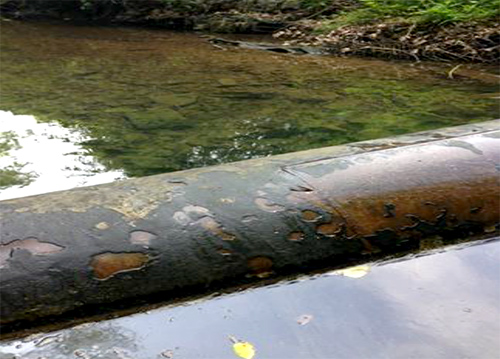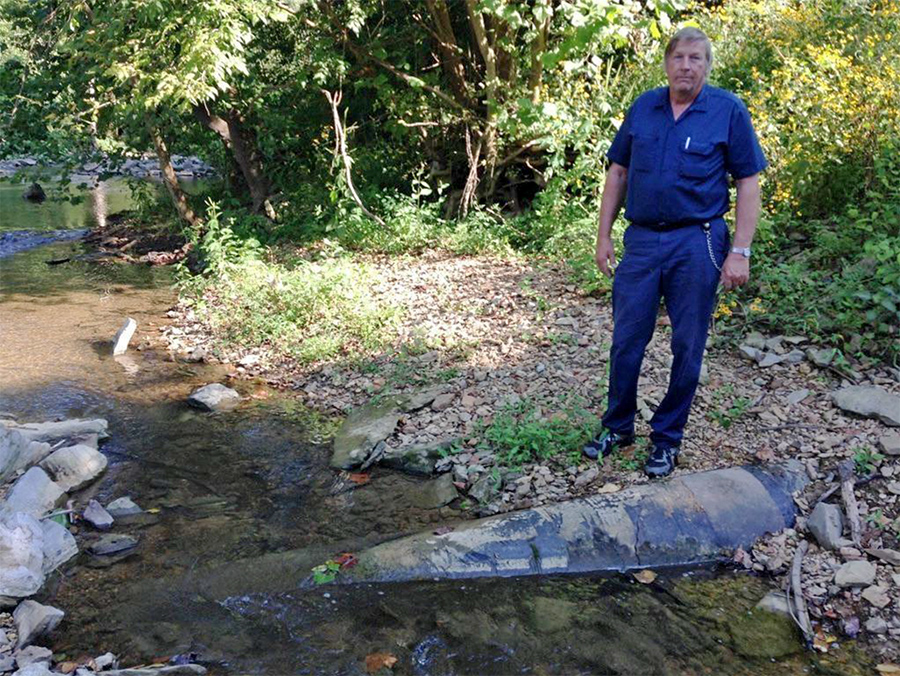Front Porch Blog

Special to the Front Porch: Mike Younger, Nashville-based singer-songwriter, became involved in the struggle to prevent pipeline expansion when his community was informed that they were in the path of a massive fossil fuel infrastructure project. Co-author of the “2015 Field Study of Gas Pipeline Safety In Tennessee,” his efforts have expanded to include support for other communities in the path of fossil fuel development, including Standing Rock. He is currently promoting his new album “Little Folks Like You And Me” and performing in diverse communities across the U.S. Visit his website at mikeyounger.com/community
My compliments to the writers and editors behind the April/May Issue of The Appalachian Voice. The issue covered a wide array of problems stemming from the current push to expand and develop pipelines and pipeline infrastructure across the United States. I was encouraged to hear that my community in middle Tennessee is not the only one mounting serious resistance to this unwanted infrastructure. We are a little to the west of most Appalachian communities, but we feel our experience is worth sharing with our eastern neighbors.

A closer look at an eroding pipe crossing a stream in middle Tennessee. Photo from the “2015 Field Study of Gas Pipeline Safety In Tennessee”
In April 2015 a small group of residents in the community of Joelton received notifications that Kinder Morgan subsidiary Tennessee Gas Pipeline intended to construct a 60,000 horsepower compressor station (among the largest in the nation) in the midst of our rural, agricultural and residential neighborhood. Our community was given 30 days to comment, but from the beginning Federal Pre-Emption (Eminent Domain) loomed as the reality we were facing.
The interstate pipeline systems passing through middle Tennessee date back to the 1940s. Tennessee has never been known for safety or environmental standards, and the condition of this infrastructure was visibly poor in numerous areas, particularly at water crossings and in ravines where pipes are exposed to adverse conditions and impacts.
Myself and J.H.Armstong, a longtime resident of the Joelton community (most directly impacted by the proposed compressor station) undertook to photograph the poor condition and obvious maintenance problems. Although J.H. was killed in an automobile accident before our work was finished, I completed the study and had help compiling the data into the 2015 Field Study Of Gas Pipeline Safety In Tennessee, which was then entered into federal proceedings at FERC and also reported to PHMSA in January 2016.
PHMSA and FERC have both been criticized for having too close ties to the oil & gas industry. Both agencies waffled on issuing enforcement actions or reprimands against Kinder Morgan despite the obvious problems with interstate pipeline systems in Tennessee. This condition existed even before the Trump administration came in with further deregulation as a centerpiece policy.

John Henry Armstrong, III, co-author of the “2015 Field Study Of Gas Pipeline Safety In Tennessee” study, standing by a partially buried and eroding pipeline in a Tennessee stream
As a community we developed several approaches to our legal challenge. At the Metro Council level (the legislative authority for Nashville and Davidson County), our representatives were able to introduce and pass legislation requiring industrial infrastructure — such as compressor stations — to be constructed on industrially-zoned land, and for toxic emissions to be contained to the property.
Our victory was short-lived, however. The Tennessee Air Pollution Control Board failed to protect the people of Tennessee by refusing to add our local ordinances to the State Implementation Plan in May 2017. Then in June, Kinder Morgan successfully lobbied the state legislature to pass legislation stripping local communities of any control over air quality as it pertains to zoning and the federal Clean Air Act. And now that the local Nashville government has been undercut at the state level, the air permit has been issued and construction is set to begin this fall.
Even though we were able to come together as a community, young and old, left and right, urban and rural, leveraging our elected representatives and successfully pulling the levers of functional democracy, the corruption of state-level government thwarted our efforts to protect the community and has left Nashville at the mercy of a corrupt state legislature, two lawsuits against us from Kinder Morgan (for not issuing them the required permits quickly enough), a 60,000 horsepower compressor with verifiable toxic emissions reigning down over playgrounds, schools and densely populated areas, and corroded and poorly maintained pipeline infrastructure laying across Tennessee creeks, ravines and waterways.
Perhaps the greatest outrage for me was the fact that it was revealed through state documents that after the flood of 2010, Kinder Morgan acknowledged that rushing waters had uncovered their pipelines and posed a substantial risk to the community in the form of a potential impact and explosion ½ mile in diameter. Five years later, the presence of exposed pipelines in Tennessee creeks showed that very little had been done to address the problem, and although we were successful in drawing PHMSA inspectors to our area from Atlanta, they ultimately failed to hold Kinder Morgan accountable for their negligent operation of corroded and poorly maintained pipelines in our community.
Even though five years had passed since the public safety risk had been officially acknowledged by Kinder Morgan in their own filings, the corroded and exposed condition of the pipelines failed to trigger enforcement action by the only agency with jurisdiction to hold Kinder Morgan accountable. The system has failed us. But we will continue to fight for our communities and our collective futures.
PREVIOUS
NEXT
Related News

Leave a comment
Your email address will not be published. Required fields are marked *
2 responses to “Re: The Problem With Pipelines”
-
Listen to Mike’s song…
Poisoned Rivers
https://www.youtube.com/watch?v=fgYoHKCFhGE -
If any Appalachian Voice readers would like to ask any questions about the status of our issue here in Middle Tennessee or if they would like a copy of the 2015 Pipeline Field Study they are free to contact my via my website http://www.mikeyounger.com or via my email for such dialogue at 2015pipelinefieldstudy@gmail.com


Leave a Comment